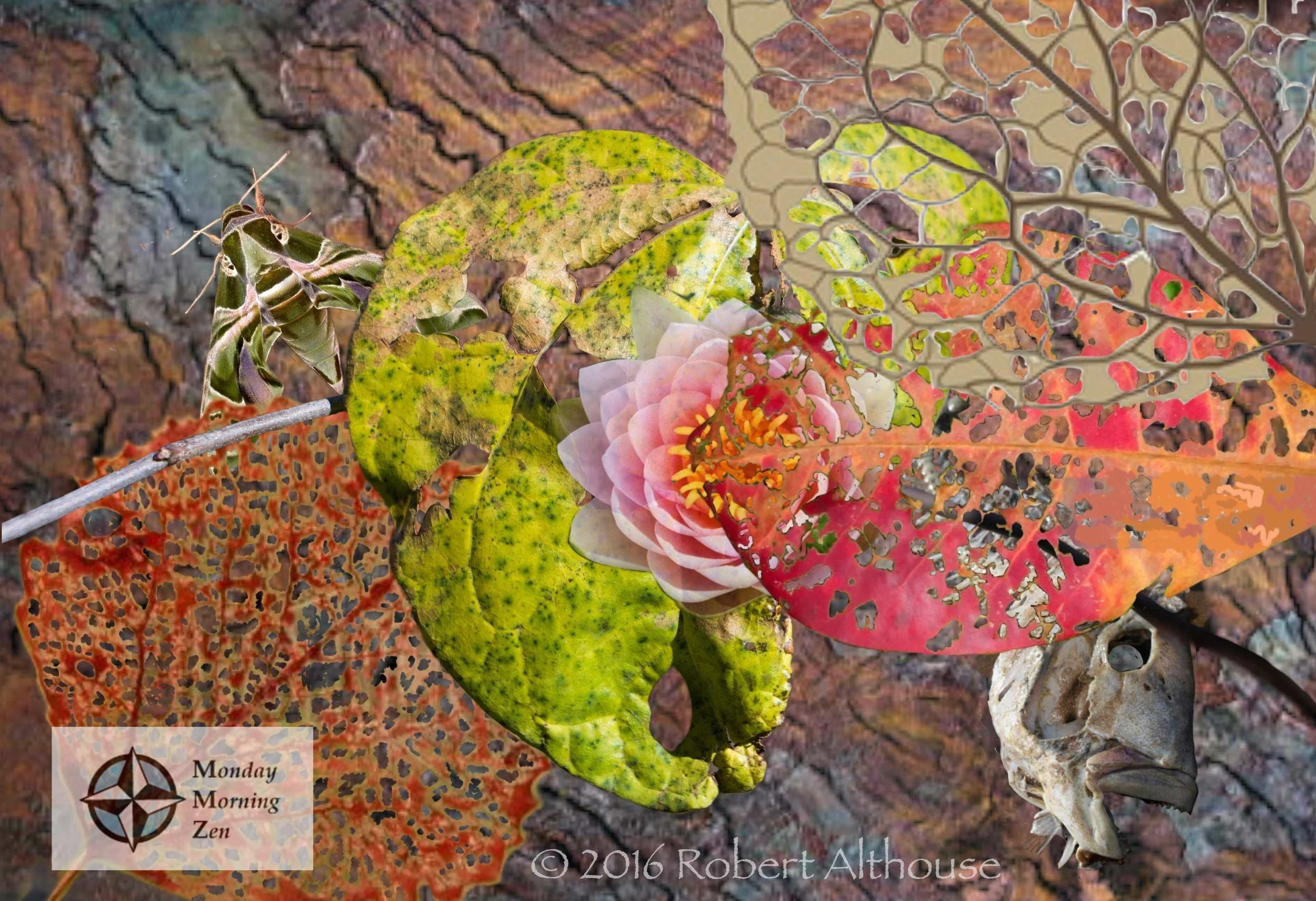Complexity and the Pattern that Connects
Complexity is a way of appreciating the living fabric of our lives. And given how toxic and strange this election season has been in 2016, it's probably a good idea. Seth Godin recently compared our politics to a pro-wrestling match. The election has descended to the level of spectacle and entertainment. In pro-wrestling the blood is fake. The physics is fake. The referee is fake. It's professional but it's not real. You can make up the rules, ignore authority and bully others. But in real life, physics actually work and blood feuds don't usually end up well. In real life accepting the referees decisions is the way democracies function. If you are so attached to your own version of reality you might easily feel the world is an affront, an intrusion about the way things should turn out.
Complexity, like the mandala principle, is about totality, a self-organizing principle without any reference point. It includes samsara and nirvana, chaos and order, death and life, confusion and clarity. Conflict arises when you fixate on a particular point of view and abstract it from the larger ecology where it lives and breathes. The mandala is orderly because there is a pattern that connects; but it's also chaotic because we are confused in working with that order. But we are confused methodically. That is, we are deliberately ignoring ourselves. So there is intelligence in our ignorance because we are actively boycotting enlightenment.
The way we think has to do with how we perceive. With our rational, logical thinking we can only see a small piece of a larger context. So it seems to me there levels of communication that only art can touch and herein lies our hope.
Life has structure and order, but that order is cradled perpetually in chaos. Art allows us to see multiple perspectives simultaneously. Art is free to move through nature and culture and time. Art is a language of relationships. It unlocates us because we are not sure where the art is. Is it in the painting or is in the one viewing the painting? So art is wonderful because it doesn't feel compelled to prove any of this. So perhaps art can communicate complexity more skillfully than most other disciplines.
It may be useful to differentiate complexity and complications. Complexity is often economical and elegant whereas complication is confused and conflicted because it has been removed and abstracted from the larger ecology.
The violence of breaking the world into bits and pieces and not putting it back together again matches the blindness of separating ecology from economy and politics. It shows up in our politics as gridlock where nothing can get done. In "The Watchman's Rattle: Thinking Our Way Out of Existence" Rebecca Costa writes compellingly about the memes that result from this fragmentation. She shows out how these memes metastasize into supermemes. "A supermeme, she says, "is any belief, thought, or behavior that becomes so pervasive, so stubbornly embedded, that it contaminates or suppresses all other beliefs and behaviors in society." Some of these current supermemes are irrational opposition, silo thinking, counterfeit correlations and extreme economics.
There are no short cuts in ecology. Each damaged linkage represents an error in our understanding of our world. When the abuse of language is allowed to stand or a distorted way of thinking solidifies into a supermeme, it creates a disease within our collective well being and body politics. The singularity represented by this kind of linear thinking does great violence to our lived reality. It creates an isolated "me" which is simply an epistemological, cultural and biological error.
The discord, violence and instability we all feel in our current political climate is part of a larger pattern of change and transformation. If we widen the lens and look at this larger ecology we can retrieve some sanity, dignity and strength for moving forward and facing the challenges to come.
@2016 Roshi Robert Althouse


